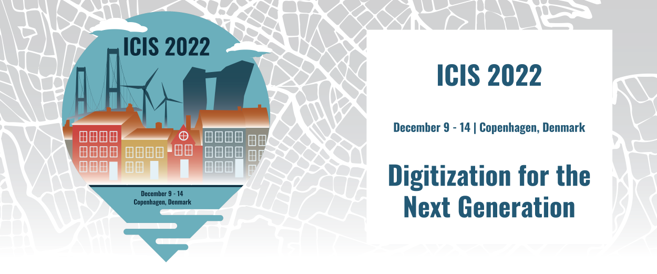Loading...
Paper Number
1850
Paper Type
Short
Description
Social media users tend to disclose a large amount of private information despite their high privacy concerns, which is termed as the privacy paradox in existing literature. Recent studies have found that privacy paradox can be explained by a privacy risk compensation process: users engage in privacy protection behaviors to cope with privacy threats, which in turn increase their privacy disclosure. However, it remains unclear under what condition the privacy risk compensation process can take place. In this study, we integrate the psychological ownership theory with risk compensation theory, and find that psychological ownership plays a moderation role in strengthening the privacy risk compensation. An online survey was conducted with 300 Facebook users, and our hypotheses were greatly supported. Our findings encourage social media platforms to provide more functional design elements to support users’ privacy protection behaviors and satisfy their motivational needs of psychological ownership of privacy.
Recommended Citation
Wang, Lijun; Zhang, Jun; Zhang, Jingzhi; and Xiabing, ZHENG, "The Role of Psychological Ownership in Privacy Risk Compensation: A Moderated Mediation Model" (2022). ICIS 2022 Proceedings. 8.
https://aisel.aisnet.org/icis2022/security/security/8
The Role of Psychological Ownership in Privacy Risk Compensation: A Moderated Mediation Model
Social media users tend to disclose a large amount of private information despite their high privacy concerns, which is termed as the privacy paradox in existing literature. Recent studies have found that privacy paradox can be explained by a privacy risk compensation process: users engage in privacy protection behaviors to cope with privacy threats, which in turn increase their privacy disclosure. However, it remains unclear under what condition the privacy risk compensation process can take place. In this study, we integrate the psychological ownership theory with risk compensation theory, and find that psychological ownership plays a moderation role in strengthening the privacy risk compensation. An online survey was conducted with 300 Facebook users, and our hypotheses were greatly supported. Our findings encourage social media platforms to provide more functional design elements to support users’ privacy protection behaviors and satisfy their motivational needs of psychological ownership of privacy.
When commenting on articles, please be friendly, welcoming, respectful and abide by the AIS eLibrary Discussion Thread Code of Conduct posted here.



Comments
06-Security